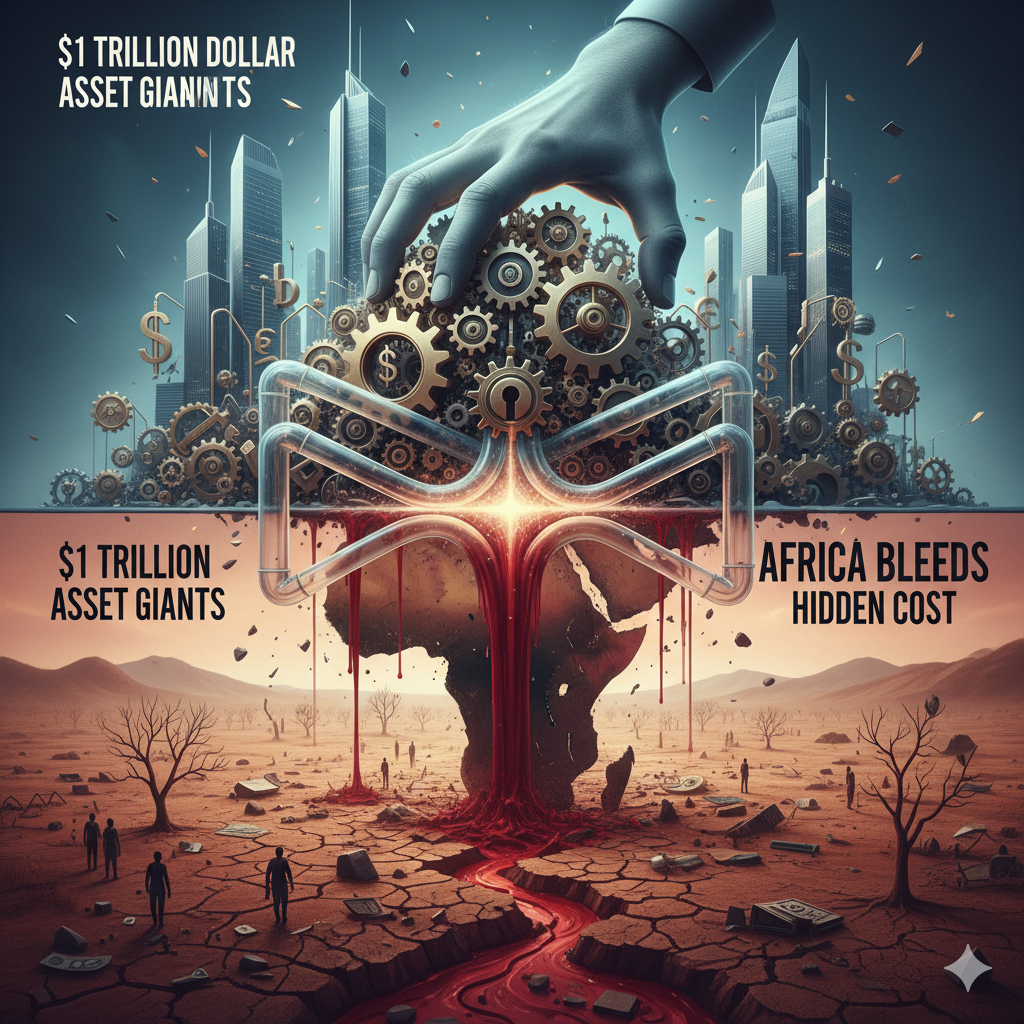When Europe Consolidates, Africa Bleeds: The Hidden Cost of $1 Trillion Asset Giants
Europe’s giants ($1T+ AUM Amundi, BLK) reshape flows, leaving JSE:JSER.JO, NSE:NMSE.NR, BRVM:BRVM.CI exposed; MTN.JO, DANGCEM.LG risk marginalization as passive ETFs redirect capital.

he consolidation wave sweeping Europe’s asset management industry, as captured in Bloomberg’s latest AUM rankings and deal mapping, may look distant to African investors at first glance, but its ripples are already shaping the continent’s capital markets. Europe’s largest managers—ranging from BlackRock’s iShares dominance to Amundi’s regional footprint—are pushing deeper into emerging market allocations and cost-efficient passive vehicles, while African fund managers remain fragmented, under-capitalized, and often tethered to local pension regulation. For Africa, where capital markets are still shallow, these structural shifts create both an opportunity and a vulnerability.
On one side, the expansion of passive and ETF products, mostly domiciled in Europe and the U.S., continues to absorb capital that might otherwise rotate into Africa’s thin equity and bond markets. The Johannesburg Stock Exchange (JSE:JSER.JO), Nairobi Securities Exchange (NSE:NMSE.NR), and Bourse Régionale des Valeurs Mobilières (BRVM:BRVM.CI) have long depended on global frontier and emerging market allocations for liquidity. As European managers consolidate, their benchmarks skew further toward cost-efficient mega-markets, leaving African equities with smaller index weightings and lower visibility. In practice, this means that even strong corporate earnings in Safaricom (SCOM.NR), MTN Group (MTN.JO), or Dangote Cement (DANGCEM.LG) may not translate into proportional portfolio flows.
Yet Africa is not only on the receiving end. Sovereign wealth funds in Morocco, Botswana, and Nigeria increasingly allocate to global managers for offshore diversification, effectively subsidizing European asset consolidation. Meanwhile, domestic managers remain small in comparison—South Africa’s Allan Gray, Coronation Fund Managers, or Kenya’s ICEA Lion collectively pale beside European balance sheets north of $1 trillion. The imbalance raises a sovereignty question: can African savings be recycled into African growth, or will consolidation abroad siphon returns outward while importing volatility inward?
There is also the strategic risk of dependency. The euro-denominated inflows and custody operations run by Europe’s giants expose African markets to exchange-rate swings and policy shocks in Frankfurt, Paris, and London. If a large European manager rebalances out of frontier debt in response to ECB tightening, African sovereign spreads react instantly. Yields on Ghana’s 2032 Eurobond (GHANA 32s), Nigeria’s 2029s (NGERIA 29s), and Kenya’s 2031s (KENINT 31s) can spike not because of domestic fundamentals but because of portfolio adjustments thousands of miles away. This imported fragility sits at the heart of Africa’s capital markets dilemma.
Still, the trend is not purely negative. Europe’s consolidation opens a channel for partnership and knowledge transfer. If African regulators and exchanges negotiate cross-listing agreements and technology sharing, they could leverage European infrastructure while protecting domestic interests. The surge in ETF manufacturing, for instance, could be localized through regional vehicles listed on the JSE or Casablanca Stock Exchange that track African thematic baskets—renewables, fintech, infrastructure—while tapping European distribution. That would shift Africa from being an afterthought in global funds to becoming a product originator.
The African lens also exposes what the Bloomberg data leaves out: informal savings, cooperative investment societies, and pension funds that dominate retail finance across the continent. While Europe aggregates trillions into index funds, Africa’s long-term potential lies in mobilizing its fragmented savings base into scalable, transparent vehicles. Without such consolidation at home, the continent will remain a price-taker in a global asset market whose center of gravity is shifting ever further away.





